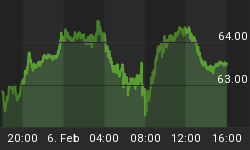Last week the Federal Open Market Committee kept interest rates on hold for the second straight meeting. This further validated the view that the Fed is indeed on hold and the equity markets continued presages of a soft landing in the economy and the housing market. While the stock market embraces this rosy outlook, the bond and commodity markets are foreboding a different outcome for the economy.
As of today's writing, the yield on the 10 year treasury is 4.61%, inverting the yield curve by 64 basis points below the fed funds rate. Is the fed correct in keeping rates at 5.25% in their attempt to slow down economic growth (which has nothing to do with inflation)? Or is the bond and commodity markets correct in pricing in a recession?
The chances of a serious economic slowdown are high because of the cooling in the housing market, which is being exacerbated by a tighter monetary policy from world central bankers. This dual headwind will most likely blow the consumer off his usual spendthrift course and bring GDP growth well below trend if not into a recession come the first half of 2007. Viewing the housing market from different metrics of monthly inventory supply, income-to-price ratios, lending standards, inflation and population growth, the only conclusion to reach is that it will take years for this market to recover and finish adjusting.
In addition to the above, one of the main reasons why I believe it will take years to work off the excess housing inventory is the denial of the bubble by home construction companies. The annual rate of population growth has been running around 1% since the mid 1960's up to the present. From 1965-1985 the average increase in U.S. population was 2.2mm people. Even using today's U.S. population of approximately 300mm, the number of new individuals who need to purchase a home is about 3million per annum. The average number of people per household is 2.6. Therefore, additional dwellings need to increase by about 1.15 million units to maintain equilibrium. According to the commerce department, in the month of August, the annual increase in new home construction was running at 1.66 million units for 2006. That is a decrease of 19.8% below August of last year when the rate was 2.075 million units. What this tells us is the rate of new home construction is still outstripping the intrinsic need to house the increased population. Forget about absorbing already superfluous inventory, homebuilders are still putting up units for flippers and "investors."
During the NASDAQ collapse of nearly 80% from March of 2000-Oct.2002, the index was purged of many of its speculative companies as they were de-listed from the exchange. This facilitated a partial recovery in the average as it removed some of the excess supply of equities. Real estate is different. Once a home is built, it remains in the supply equation until it is absorbed. While a decline in home values anywhere close to the extent experienced by the tech bubble is close to impossible, a long protracted bear market in real estate which brings prices nation wide down 20-30% is likely.
With the economy slowing along with earnings growth, it will be difficult for the Dow to power much above its all time high (which on a trailing basis is still trading at a premium to historical P/E ratios). S&P estimates of 12% earnings growth seem a bit optimistic under these economic conditions; if the recent streak of double digit earnings growth does indeed end, P/E multiple contractions would be the expected outcome.
Look for further confirmation of a softening economy (much like the Philly Fed's manufacturing numbers) from this week's patch of economic data. If the durable goods or the Richmond Fed manufacturing index numbers come in weaker than expected, look for equities to sound the retreat and hope that Ben Bernanke hears the horn. My guess is he will accommodate the markets and start to lower rates, but not until early 2007. His reduction could be 75-100 basis points over the course of next year, hopefully putting the yield curve and the markets back into harmony.
**Investors are increasingly turning to Canada for energy sector exposure as they search for hedges against inflation. To learn more, get "Go North!" our exclusive, free report on Canadian royalty trusts by clicking here: http://www.deltaga.com/reportForm.asp?rep=2.















